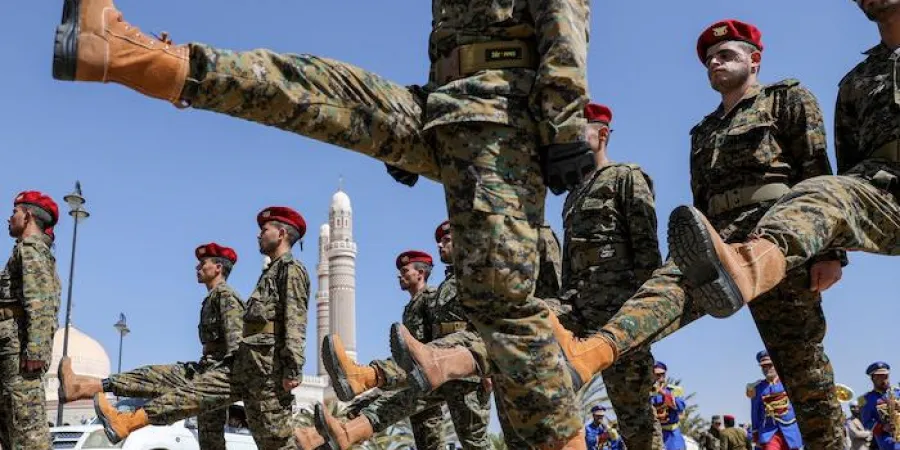First meeting between Iran, Saudi Arabia after five-year rift
The Financial Times reported that senior officials from the two countries held direct talks in Baghdad last week in an attempt to ease tensions and to stop the Houthi attacks on Saudi targets
Mandi Kogosowski
| 19/04/2021
Five years after diplomatic relations between Iran and Saudi Arabia were severed, senior officials from the two countries held direct talks in an attempt to ease tensions, the Financial Times reported on Sunday, citing official sources.
According to the report, the first round of talks was held in Baghdad on April 9, and the sides discussed the attacks by Yemen's Houthi rebels, supported by Iran, against Saudi Arabia. The talks "were positive", an official source said. The Financial Times reported that a senior Saudi official denied that the talks were held, while Reuters said that the Saudi authorities did not respond to its request for a comment. At the time that this story was written, there were no reports about the meeting in the main Arab media or news agencies.
The contacts between the sides are taking place amid the indirect nuclear talks between Washington and Tehran in Vienna, as well as the attempt to end the war in Yemen, which serves as a proxy war between the two. Last week, Saudi Foreign Minister Faisal bin Farhan al-Saud said Iran must not be allowed to possess nuclear weapons or have the capability to develop them, and that the renewed deal must have stronger parameters and a longer duration than the previous one.
The head of policy planning at the Saudi Foreign Ministry, Rayd Krimly, said that any agreement that does not effectively address concerns about Iran's missile program and its support for regional proxy militias in the region would not work. "Saudi Arabia is not interested in hindering or blocking the current negotiations…it is interested in ensuring their success in achieving effectively the desired results," Krimly said, adding that "Our security and stability is not something we will bargain with."
Meanwhile, the U.N. Security Council met Friday to discuss ways of ending the war in Yemen. Special envoy Martin Griffiths said that after six years it is still not clear when and how it is possible to reach such a situation. However, the members of the council expressed support for the Saudi plan submitted in March that includes the opening of the airport in Sana'a and the opening of the seaport of Hudaydah for shipments of food and fuel.
The Financial Times reported that senior officials from the two countries held direct talks in Baghdad last week in an attempt to ease tensions and to stop the Houthi attacks on Saudi targets
Five years after diplomatic relations between Iran and Saudi Arabia were severed, senior officials from the two countries held direct talks in an attempt to ease tensions, the Financial Times reported on Sunday, citing official sources.
According to the report, the first round of talks was held in Baghdad on April 9, and the sides discussed the attacks by Yemen's Houthi rebels, supported by Iran, against Saudi Arabia. The talks "were positive", an official source said. The Financial Times reported that a senior Saudi official denied that the talks were held, while Reuters said that the Saudi authorities did not respond to its request for a comment. At the time that this story was written, there were no reports about the meeting in the main Arab media or news agencies.
The contacts between the sides are taking place amid the indirect nuclear talks between Washington and Tehran in Vienna, as well as the attempt to end the war in Yemen, which serves as a proxy war between the two. Last week, Saudi Foreign Minister Faisal bin Farhan al-Saud said Iran must not be allowed to possess nuclear weapons or have the capability to develop them, and that the renewed deal must have stronger parameters and a longer duration than the previous one.
The head of policy planning at the Saudi Foreign Ministry, Rayd Krimly, said that any agreement that does not effectively address concerns about Iran's missile program and its support for regional proxy militias in the region would not work. "Saudi Arabia is not interested in hindering or blocking the current negotiations…it is interested in ensuring their success in achieving effectively the desired results," Krimly said, adding that "Our security and stability is not something we will bargain with."
Meanwhile, the U.N. Security Council met Friday to discuss ways of ending the war in Yemen. Special envoy Martin Griffiths said that after six years it is still not clear when and how it is possible to reach such a situation. However, the members of the council expressed support for the Saudi plan submitted in March that includes the opening of the airport in Sana'a and the opening of the seaport of Hudaydah for shipments of food and fuel.



